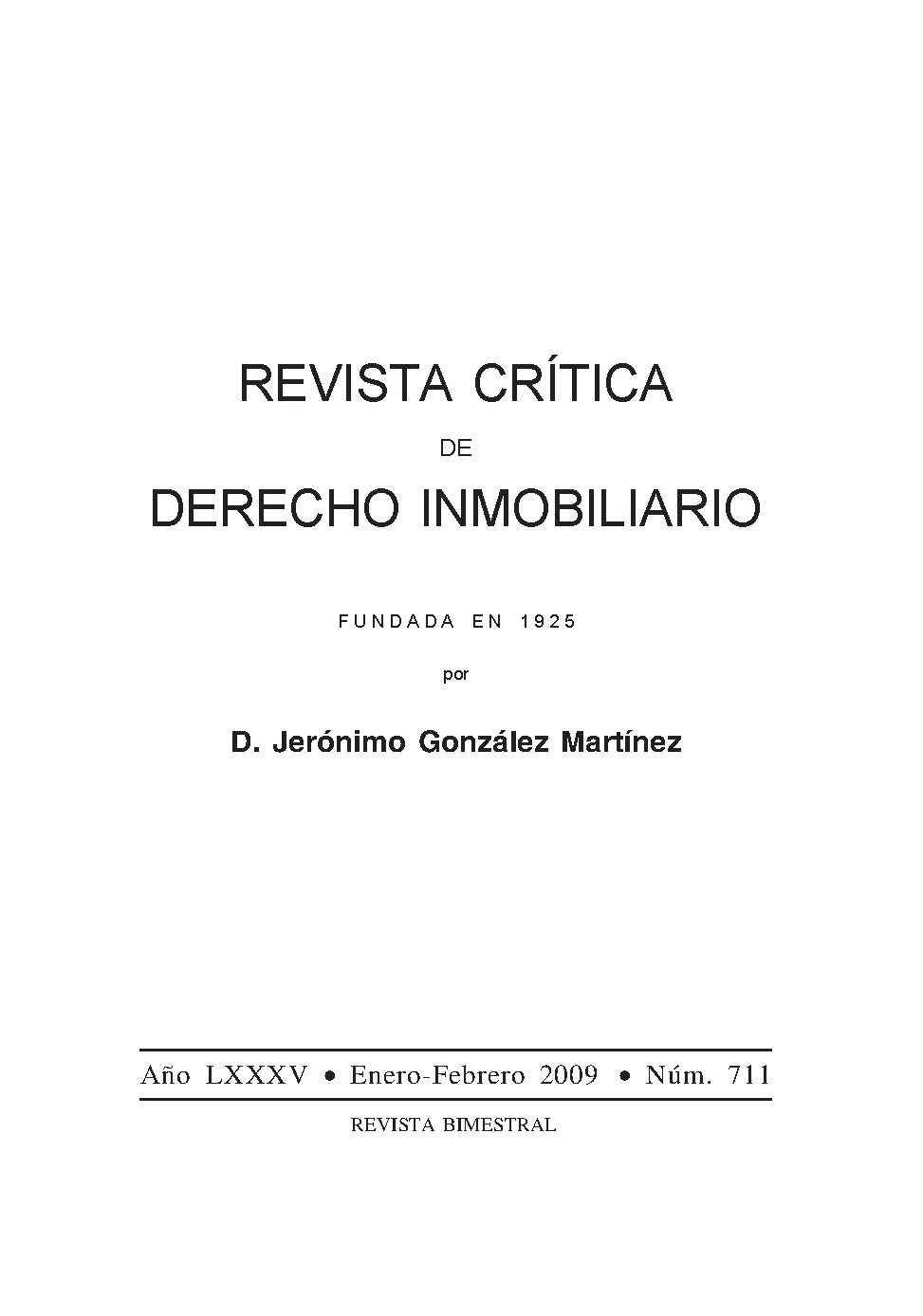LA INSCRIPCIÓN DE LA HIPOTECA. ARTÍCULO 12 LH REFORMADO POR LEY 41/2007. SU LECTURA POR LA DIRECCIÓN GENERAL DE LOS REGISTROS Y DEL NOTARIADO Y POR EL COLEGIO DE REGISTRADORES. CONTENIDO Y EFECTOS DEL ASIENTO DE INSCRIPCIÓN DEL DERECHO REAL DE HIPOTECA (MÁS UN APÉNDICE CON NOTAS A LA RESOLUCIÓN DE LA DGRN DE 24 DE JULIO DE 2008).
Keywords:
MORTGAGEAbstract
Article 12 of the Mortgage Act was reformed by Act 41/2007 of 7 December. Its interpretation has led to some very different readings. This paper defends the thesis that the new wording can only be understood by understanding the Reform Act itself, which sought to standardise the form in which mortgage registration entries are made, but never to modify the mortgage system or alter the object of property registration; only real rights are ever registered, not obligations or personal accords. As a consequence of that approach, article 12 of the Mortgage Act now defines the standard contents of the real right of mortgage in terms of the object of the right, which is the secured obligation. These contents are the clauses on early maturity and other financial clauses. The decision on what those contents are going to be belongs to the parties to the act, whose right it therefore is to assign real importance to those contents, due to their direct influence on the security right over real property, which is necessary for entry in the registry, without prejudice of the registrar's examination (which the Reform Act refrained from modifying). Thus the efficacy of the entry of mortgages with respect to the security right over real property and with respect to the secured obligation is clarified. Said efficacy is studied in terms of four aspects: constitutive nature, attestation, non-opposability and enforceability. And it is concluded in the natural efficacy of the registration system in terms of its object, the mortgage, in the same terms (save constitutive nature) as for any other real right. Registration efficacy therefore extends to the secured obligation solely and exclusively inasmuch as that obligation is the object of a security right over real property. However, in no case does registration efficacy protect the obligation as such; the nature and transferring of obligations are governed by the general principles of the law on obligations in the Civil Code and are not altered by real estate law, for obligations are not the object of real estate law.









